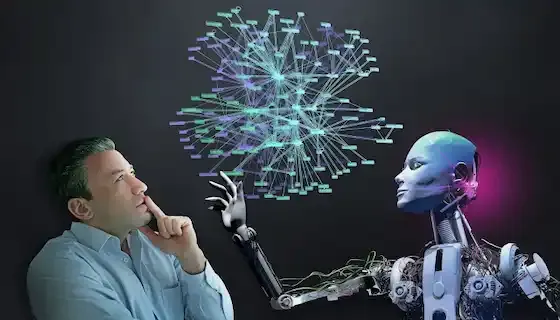Will Artificial Intelligence Save Or Destroy Humanity?
Can AI destroy humanity?
On the off chance that tech specialists are to be accepted, computerized reasoning (Artificial Intelligence) can possibly change the world. Yet, those same specialists don't concede to what sort of impact that change will have on the normal individual.
Some trust that people will be greatly improved off in the hands of cutting edge AI Technology frameworks, while others figure it will prompt our inescapable destruction
How could a solitary innovation bring out such incomprehensibly unique reactions
Computerized reasoning is programming worked to learn or issue understand forms commonly performed in the human cerebrum. Computerized associates like Amazon's Alexa and Apple's Siri , alongside Tesla's Autopilot, are altogether fueled by Artificial Intelligence. A few types of AI Technology can even make visual craftsmanship or compose songs.There's little inquiry that Artificial Intelligence can possibly be progressive.
Robotization could change the way we work by supplanting people with machines and programming. Encourage advancements in the range of self-driving autos are ready to make driving a relic of past times. Misleadingly keen shopping collaborators could even change the way we shop. People have constantly controlled these parts of our lives, so it bodes well to be somewhat careful about giving a simulated framework a chance to assume control
The Lay Of The Land
Artificial Intelligence is quick turning into a noteworthy financial power. As indicated by a paper from the McKinsey Global Institute Study announced by Forbes, in 2016 alone, between $8 billion and $12 billion was put resources into the advancement of AI Technology around the world. A report from examiners with Goldstein Research predicts that, by 2023, Artificial Intelligence will be a $14 billion industry.KR Sanjiv, boss innovation officer at Wipro, trusts that organizations in fields as unique as human services and fund are putting such a great amount in AI Technology so rapidly in light of the fact that they fear being deserted. "So as with everything abnormal and new, the overall knowledge is that the danger of being abandoned is far more prominent, and far grimmer, than the advantages of avoiding any risk," he wrote in an opinion piece distributed in Tech Crunch a year ago
Diversions give a helpful window into the expanding complexity of Artificial Intelligence. For example, engineers, for example, Google's DeepMind and Elon Musk's Open AI Technology have been utilizing recreations to show Artificial Intelligence frameworks how to learn. Up until now, these frameworks have bested the world's most noteworthy players of the antiquated technique amusement Go, and considerably more unpredictable diversions like Super Smash Bros and DOTA 2.On the surface, these triumphs may sound incremental and minor AI Technology that can play Go can't explore a self-driving auto, all things considered. Be that as it may, on a more profound level, these advancements are demonstrative of the more refined Artificial Intelligence frameworks without bounds. Through these diversions, AI Technology end up plainly equipped for complex basic leadership that might one be able to day convert into true undertakings. Programming that can play endlessly complex recreations like Starcraft, could, with significantly more innovative work, independently perform surgeries or process multi-step voice charges
Artificial Intelligence Anxiety
Attentiveness encompassing capable mechanical advances isn't novel. Different sci-fi stories, from The Matrix to I, Robot, have misused watchers' uneasiness around Artificial Intelligence. Numerous such plots base on an idea called "the Singularity," the minute in which AI Technology s turn out to be more wise than their human makers. The situations vary, however they frequently end with the aggregate annihilation of mankind, or with machine overlords oppressing people.Several widely acclaimed sciences and tech specialists have been vocal about their feelings of dread of Artificial Intelligence. Hypothetical physicist Stephen Hawking broadly stresses that exceptional AI Technology will assume control over the world and end mankind. In the event that robots end up plainly more quick witted than people, his rationale goes, the machines would have the capacity to make unbelievable weapons and control human pioneers easily. "It would take off individually, and upgrade itself at a regularly expanding rate," he told the BBC in 2014. "People, who are restricted by moderate natural development, couldn't contend, and would be superseded
Elon Musk, the futurist CEO of endeavors, for example, Tesla and SpaceX, echoes those slants, calling Artificial Intelligence "… an essential hazard to the presence of human progress," at the 2017 National Governors Association Summer Meeting.Neither Musk nor Hawking trust that engineers ought to evade the improvement of AI Technology, yet they concur that administration control ought to guarantee the tech does not denounce any and all authority. "Ordinarily, the way controls are set up is an entire group of awful things happen, there's an open clamor, and after numerous years, an administrative organization is set up to direct that industry," Musk said amid a similar NGA talk. "it takes until the end of time. That, before, has been terrible, yet not something which spoke to a crucial hazard to the presence of human progress

